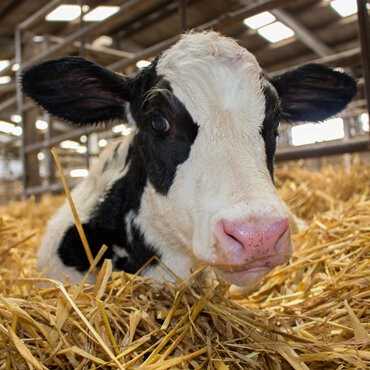Franklin Vets
Franklin Vets - excellence in veterinary care for dairy, farming, lifestyle, equine and household pets. BESTPRACTICE ACCREDITED NZ.

Different animal species vary in their susceptibility to Clostridial diseases. For example, goats and Camelids such as alpacas/llamas are very susceptible to contracting Clostridial diseases and protection is essential. Horses are very prone to catching tetanus necessitating strong protection via vaccination. Cats and dogs are reasonably resilient against Clostridial disease and infection is uncommon. Cattle and sheep fall somewhere in between. Losses can be severe in situations where environmental conditions are right causing distress to the affected animals and financial losses to the farmer.
All Clostridial diseases cause death very rapidly with death normally occurring before the animals are even noticed. Even if the disease is noticed then treatment is usually futile. Clostridial spores can survive in the soil indefinitely and are very resistant to most disinfectants. Control of these diseases, therefore, relies on vaccination.
Vaccination has been around for decades and is generally very effective; however, the vaccine will only cover the diseases that are vaccinated for. Traditionally we have used 5in1 vaccine, this covers the 5 most common Clostridial diseases, namely; Tetanus, Blackleg, Pulpy Kidney, Black Disease and Malignant Oedema.
5in1 is very good at preventing these diseases however as mentioned above there are several other Clostridial diseases, which are not protected against by 5in1. This may be significant on some farms with reports of ‘sudden death’ being of great frustration to farmers. This gap in protection has led to the development of several other Clostridial vaccines with a range of names. All have their pro and cons, and deciding which one is best for your farm is best done in consultation with your vet who knows your farming system and which vaccine is best for you.
One of the more recent vaccines that we promote for cattle is 6in1, this vaccine covers for the same bacteria as 5in1 plus a bacteria called Clostridium sordelli. This bacteria has been found to cause significant numbers of sudden deaths in cattle on some farms. Another vaccine we commonly use at Franklin Vets is 7in1, this vaccine covers the 5 bacteria found in 5in1 plus 2 strains of Leptospirosis. As this vaccine covers for Lepto, it is only available under veterinary prescription.
8in1 vaccine is new to the market, again it has the 5 standard bacterial strains found in 5in1 plus 3 other strains that can cause significant issues in sheep and goats, as such this vaccine is most commonly used in sheep.
The Covexin 10in1 vaccine is considered the Rolls Royce of clostridial control. It covers for the standard 5 bacteria controlled by 5in1 plus an additional 5 including Cl sordelli and the 3 in 8in1. Like driving a Rolls Royce this level of protection does come at a premium. We recommend you chat with your vet to see if this level of investment is correct for your stock. It is only available under veterinary authorization and you will need to chat with your vet to see if this product is correct for your stock.
Like all vaccines, the level of protection is only as good as the people administering it. You can have the best, most effective vaccine in the world but if it is handled, stored or administered incorrectly or at the wrong time, the level of protection may be severely compromised. It is important that Clostridial vaccines are stored in the fridge but must not be allowed to freeze as this will destroy the vaccinal components.
These vaccines must be given using clean needles under the skin to avoid abscess development. Timing of vaccination is also very important. The best time to vaccinate your animals will depend on the age of the animal and its previous vaccination history. Generally, animals vaccinated for the first time need 2 vaccinations about 4 weeks apart, and then yearly boosters. However, boosters may need to be given more often in high-risk stock (such as goats) or high-risk environmental conditions (such as recent flooding).
If you wish to protect the offspring immediately after birth we recommend vaccinating the mothers 3-4 weeks before giving birth. If the lamb/kid receives colostrum they will receive antibodies in the milk and gain protection for the first few weeks of life. However, if the newborn does not receive adequate amounts of colostrum or if the mother was not vaccinated, they will be vulnerable to sudden deaths from Clostridial disease. In this situation it is best that these animals receive a dose of Lamb Vaccine that provides ready-made antibodies, this will provide protection to the animal until it is old enough to receive its first vaccine.
For the exact timing of when to give vaccinations to your animals, we advise you to speak with your vet to ensure that the timing suits your specific situation.
Obviously, Clostridial diseases can kill very quickly and cause significant animal welfare issues and financial loss along with emotional distress. The best way to prevent the impact of these diseases is to vaccinate. There are a plethora of vaccines on the market and all have their uses in specific situations. We recommend formulating a vaccination plan with your Franklin veterinarian that will best suit your farming situation.
Dr Brent Neal BVSc MANZCVS Veterinary Pharmacology